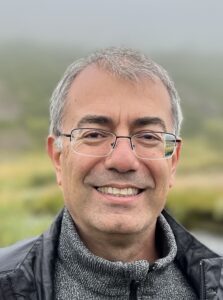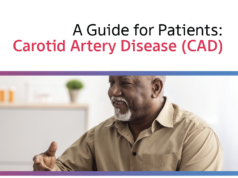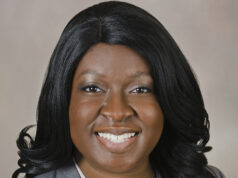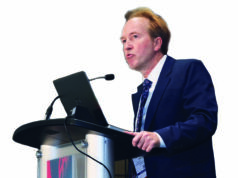
A new study set to be aired at the 2024 Society for Clinical Vascular Surgery (SCVS) annual meeting (March 16–20) in Scottsdale, Arizona, sheds a statistical spotlight on the state of the specialty’s reach into the mainstream consciousness.
A team led by Babak Abai, MD, program director of the vascular surgery fellowship at Thomas Jefferson University in Philadelphia, performed a Google News analysis across both the medical and lay press to detect the scale of representation of vascular surgical voices in news coverage of vascular disease compared to other specialists who treat vascular pathologies.
What they found, Abai told Vascular Specialist ahead of SCVS 2024, demonstrated that vascular surgeons are “very underrepresented” in articles focused on both peripheral arterial disease (PAD) and carotid disease. In the case of the former, almost 20% of the articles included in their analysis involved vascular surgical voices, with just 17% of the items focused on carotid disease involving vascular surgeons.
The study comes in the wake of a series of articles appearing in the mainstream press in recent months, some of it controversial and involving coverage of inappropriateness in vascular interventions. More recent popular media reports saw the Society for Vascular Surgery (SVS) join a multispecialty coalition aimed at raising public awareness of PAD, which led to widespread coverage of vascular surgical voices in mainstream outlets.
Since initially performing the analysis on articles related to PAD and carotid disease, Abai and colleagues—including medical student Joshua Chen, BS, who helped develop the study—have probed vascular surgical involvement in news covering aneurysmal disease, arteriovenous fistulas and venous disease. Altogether, the results are “astounding,” he said.
Abai emphasized the need for vascular surgeons to push themselves to the front of vascular disease coverage to help the specialty gain brand awareness.
“The question becomes: how do we become the leaders in the dissemination of data, because we are the experts in these areas,” Abai said. “To us, it was very surprising we had such a low percentage in terms of our representation.”
He continued: “We have a branding issue. We need to go out there, do interviews on news channels, on TV, in newspapers and on the internet—the latter, in fact, might be the best channel for us to disseminate and use to promote vascular surgery as a brand and have much better representation on the disease processes that are key to vascular surgery.”
Addressing some of the more negative coverage that has appeared in the mainstream press in recent times, Abai sees a potential silver lining. “It’s just like Hollywood,” he said. “Even bad press is not necessarily bad because it can bring visibility to your cause and what you are doing. Ultimately our goals are good. Our goals are to save limbs, our goals are to prevent strokes.
“Although I would hope we could [promote vascular surgery] in a more positive way because we don’t want the population to lose trust in us as physicians and as people who provide care for them.”











